第57章
T/HERE is, indeed, a more scepticism or
philosophy, which may be both durable and useful, and which may, in part, be the result of this P/YRRHONISM, or scepticism, when its undistinguished doubts are, in some measure, corrected by common sense and reflection. The greater part of mankind are naturally apt to be affirmative and dogmatical in their opinions; and while they see objects only on one side, and have no idea of any counterpoising argument, they throw themselves precipitately into the principles, to which they are inclined; nor have they any indulgence for those who entertain opposite sentiments. To hesitate or balance perplexes their understanding, checks their passion, and suspends their action. They are, therefore, impatient till they escape from a state, which to them is so uneasy: And they think, that they could never remove themselves far enough from it, by the violence of their affirmations and obstinacy of their belief. But could such dogmatical reasoners become sensible of the strange infirmities of human understanding, even in its most perfect state, and when most accurate and cautious in its determinations; such a reflection would naturally inspire them with more modesty and reserve, and diminish their fond opinion of themselves, and their prejudice against antagonists. The illiterate may reflect on the disposition of the learned, who, amidst all the advantages of study and reflection, are commonly still diffident in their determinations: And if any of the learned be inclined, from their natural temper, to haughtiness and obstinacy, a small tincture of P/YRRHONISM might abate their pride, by showing them, that the few advantages, which they may have attained over their fellows, are but inconsiderable, if compared with the universal perplexity and confusion, which is inherent in human nature. In general, there is a degree of doubt, and caution, and modesty, which, in all kinds of scrutiny and decision, ought for ever to accompany a just reasoner.
Another species of scepticism which may be of advantage to mankind, and which may be the natural result of the P/YRRHONIAN doubts and scruples, is the limitation of our enquiries to such subjects as are best adapted to the narrow capacity of human understanding. The of man is naturally sublime, delighted with whatever is remote and extraordinary, and running, without control, into the most distant parts of space and time in order to avoid the objects, which custom has rendered too familiar to it. Acorrect observes a contrary method, and avoiding all distant and high enquiries, confines itself to common life, and to such subjects as fall under daily practice and experience; leaving the more sublime topics to the embellishment of poets and orators, or to the arts of priests and politicians. To bring us to so salutary a determination, nothing can be more serviceable, than to be once thoroughly convinced of the force of the P/YRRHONIANdoubt, and of the impossibility, that any thing, but the strong power of natural instinct, could free us from it.
Those who have a propensity to philosophy, will still continue their researches; because they reflect, that, besides the immediate pleasure attending such an occupation, philosophical decisions are nothing but the reflections of common life, methodized and corrected. But they will never be tempted to go beyond common life, so long as they consider the imperfection of those faculties which they employ, their narrow reach, and their inaccurate operations.
While we cannot give a satisfactory reason, why we believe, after a thousand experiments, that a stone will fall, or fire burn; can we ever satisfy ourselves concerning any determination, which we may form, with regard to the origin of worlds, and the situation of nature, from, and to eternity?
This narrow limitation, indeed, of our enquiries, is, in every respect, so reasonable, that it suffices to make the slightest examination into the natural powers of the human mind and to compare them with their objects, in order to recommend it to us. We shall then find what are the proper subjects of science and enquiry.
It seems to me, that the only objects of the abstract science or of demonstration are quantity and number, and that all attempts to extend this more perfect species of knowledge beyond these bounds are mere sophistry and illusion. As the component parts of quantity and number are entirely similar, their relations become intricate and involved; and nothing can be more curious, as well as useful, than to trace, by a variety of mediums, their equality or inequality, through their different appearances.
But as all other ideas are clearly distinct and different from each other, we can never advance farther, by our utmost scrutiny, than to observe this diversity, and, by an obvious reflection, pronounce one thing not to be another. Or if there be any difficulty in these decisions, it proceeds entirely from the undeterminate meaning of words, which is corrected by juster definitions. That , cannot be known, let the terms be ever so exactly defined, without a train of reasoning and enquiry. But to convince us of this proposition, , it is only necessary to define the terms, and explain injustice to be a violation of property.
This proposition is, indeed, nothing but a more imperfect definition. It is the same case with all those pretended syllogistical reasonings, which may be found in every other branch of learning, except the sciences of quantity and number; and these may safely, I think, be pronounced the only proper objects of knowledge and demonstration.